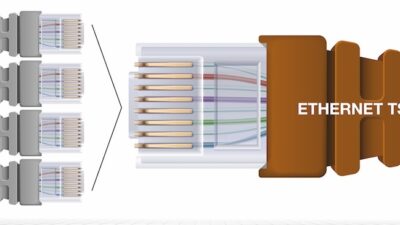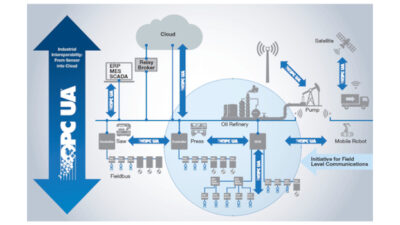Was it inevitable? Probably. Will it matter in the long run? Probably not—because the Ethernet train is thundering through.Like self-invited guests at an end-of-millennium New Year's bash, supporters of seven fieldbus protocols showed up at a recent meeting on IEC 61158 and basically mugged the guest of honor, according to some present, by inserting t...
Was it inevitable? Probably. Will it matter in the long run? Probably not—because the Ethernet train is thundering through.
Like self-invited guests at an end-of-millennium New Year’s bash, supporters of seven fieldbus protocols showed up at a recent meeting on IEC 61158 and basically mugged the guest of honor, according to some present, by inserting themselves into the proposed fieldbus standard.
A mid-June ruling by the International Electrotechnical Commission’s (IEC) Committee of Action (CoA) required its SC65C subcommittee to add a second protocol to IEC 61158 before it could become the long-awaited international fieldbus standard. This and earlier IEC meetings confirmed that IEC 61158 met the technical requirements to be the standard and invalidated six technically unsupported votes against it. These “no” votes sank IEC 61158 last year, so their later removal gave it enough votes to become the standard in January 2000.
Understanding, cooperation
However, the 40 attendees at SC65C’s working group six (WG6) meeting here on June 21-23 were confronted by representatives from Siemens, Rockwell Automation, and Fisher-Rosemount, who unveiled a “memorandum of understanding” they’d signed two weeks earlier. In it, they agreed to cooperate on drafting the CoA’s second requested protocol.
Given the years some players spent lobbying against IEC 61158, it might seem ironic there is now a cooperative effort to support it. However, this change of heart may be more understandable in light of the fact that IEC 61158 is scheduled to become the fieldbus standard in January 2000 even if a second protocol isn’t ready for balloting beginning in October 1999 or if it’s voted down by WG6 or SC65C.
Some observers say this new cooperation is just a last-ditch effort by some organizations to latch on and dilute IEC 61158, confuse future customers, and protect their investment in a huge but potentially less technically worthy installed base.
Might may make right, but cooperating companies must still have their protocol ready by Oct. 15, so the IEC’s subcommittee can vote on it by the end of 1999. Since they don’t have time to truly integrate their protocols into one, WG6 convenor Dick Caro says they will likely draft one 2,000-page or more document with multiple parallel protocols.
“I told the committee that if we wanted to do this, we had to understand that it is not what was the original direction of this committee,” says Mr. Caro. “It’s disheartening. We had previously been preparing a single interoperable protocol, and now we have multiple non-interoperable protocols. I suggested that this is not in the users’ best interests, but it does satisfy the vendors present at the meeting.”
Though it’s possible the new bandwagon-style IEC 61158 could fail in this fall’s balloting, Mr. Caro projects it will pass because it has such strong vendor support.
Aid to Ethernet?
When asked if Ethernet will follow gangster move tradition and eventually gun down its convening rivals, Mr. Caro adds the one consolation in the new IEC 61158 is the inclusion of the Fieldbus Foundation’s high-speed Ethernet protocol. “This will grease the wheels for high-speed Ethernet versions by other protocols, such as Profibus and DeviceNet,” adds Mr. Caro. “There are no ControlNet over Ethernet or Profibus over Ethernet products yet, but those who want to develop them can use work already done by the Fieldbus Foundation as a model to create future products.”
Electronic ballots on the new IEC 61158 will be due from SC65C’s national committee members by Dec. 15. Results of the voting will be available two weeks later on Jan. 2-3, 2000.
“One way or another, in the first couple of days of the new millennium, we will have a new fieldbus standard,” says Mr. Caro.
Many become one, sort of
Fieldbus protocols likely to be added to IEC 61158 include:
Type 1—the existing IEC 61158 protocols
Type 2—ControlNet
Type 3—Profibus
Type 4—Interbus
Type 5—T-Net
Type 6—WorldFIP
Type 7—SwiftNet
Type 8—Fieldbus Foundation’s high-speed Ethernet


